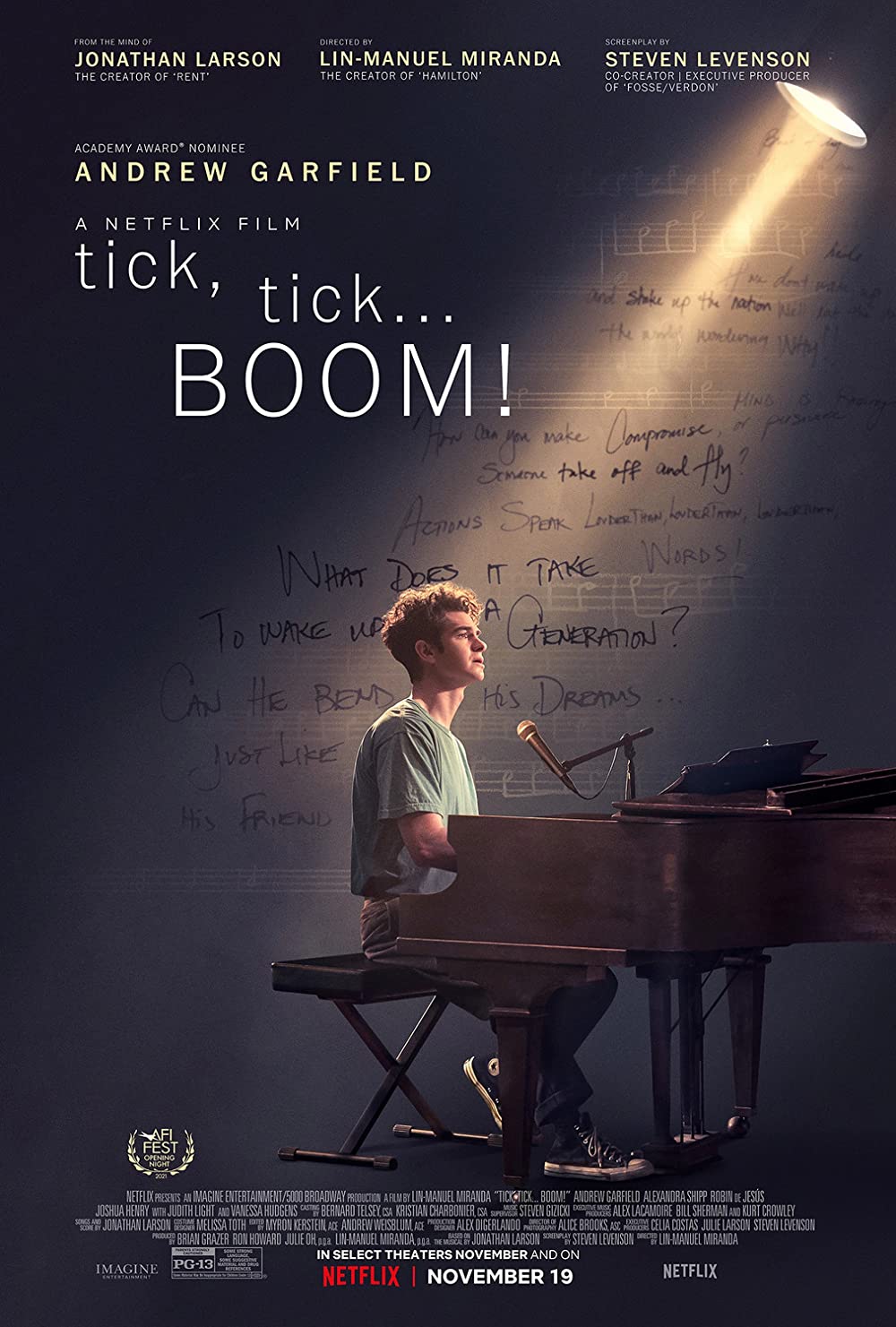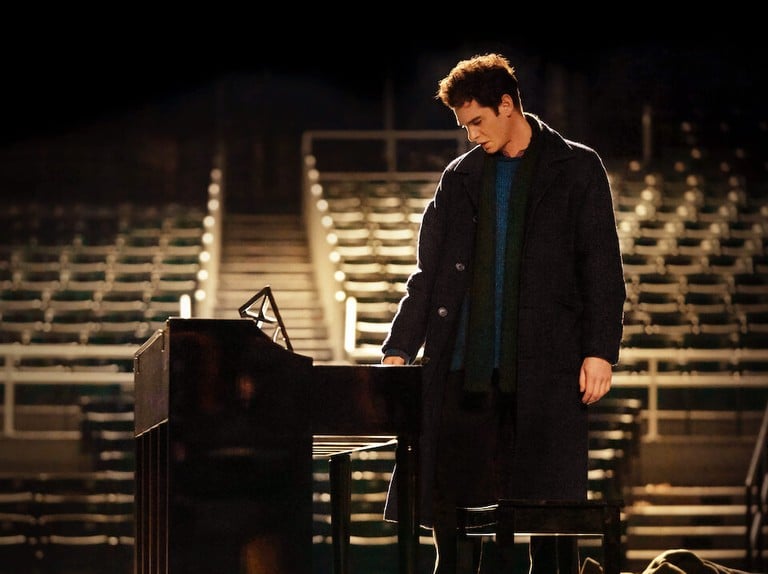
We often say that at the Midpoint, there should be a ticking clock that raises the stakes for the hero, forcing them to confront the story conflict head-on. In fact, it’s important to remember that in all stories, conflict is the name of the game, and there’s no better way to incorporate conflict than by having an ever-present ticking clock.
The film tick, tick… BOOM! accomplishes this well, incorporating several time clocks throughout the story to give a sense of urgency. It’s reflected in the title itself, based on the autobiographical musical by playwright Jonathan Larson. In the film’s opening monologue, Larson (Andrew Garfield) tells the audience, “Lately, I’ve been hearing this sound. Everywhere I go, like a tick, tick, tick…”
He’s about to turn 30, and with the literal time clock of growing older comes the inevitable questions about life. We’ve all felt it, so we can all relate. It’s a time clock that’s primal in every way, forcing us to look ahead as we get older while looking back on our years when we were filled with high hopes and dreams. It’s clearly communicated in the opening song, ”30/90”:
Years are getting shorter
Lines on your face are getting longer
Feel like you’re treading water
But the riptide’s getting stronger
Later, the song belts, “Clock is ticking, that’s for certain!”

It’s not only the years going by that demonstrate the ticking clock of Larson’s life. He’s also facing choices and challenges when it comes to his professional career. He wants to achieve his life’s dream of writing a musical. His girlfriend Susan desires a life outside of New York, while his friend Michael has moved on to a life where he has a stable job.
In the song “Johnny Can’t Decide,” he sings:
Break of day, the dawn is here
Johnny’s up and pacing
Compromise or persevere?
His mind is racing
Johnny has no guide
Johnny wants to hide
Can he make his mark if he gives up his spark?
Johnny can’t decide
Through the lyrics, we can almost feel the immediacy of the clock ticking down as Larson is forced to confront his future. Does he settle for a life that is comfortable? Does he hold tight to that which drives him? It’s a choice we’ve all felt at one point in our lives or another.
As the workshop for his musical draws closer, his stress compounds. This is his one shot, and his agent gives him news about the industry insiders she’s invited. The night before the workshop, knowing that success is within his reach, he seeks to write another song for his musical. The tension amps up and more time clocks tick.
Finding inspiration, he writes a new song, and his workshop is a success. It’s not long, however, until even more literal ticking clocks emerge. One of his friends who is HIV-positive, Freddy, is hospitalized. Later on, his friend Michael reveals that he is HIV-positive as well. The reality of life and death hits Jonathan head-on, and he struggles with this in the song “Why.” As he reflects on a time when he and Michael were kids, learning to sing for a talent show, he sings:
I thought, hey, what a way to spend a day
Hey, what a way to spend a day
I make a vow right here and now
I’m gonna spend my time this way

The song is symbolic of Larson’s transformation, revealing that he’s decided what to do with his life. After staring down the whiff of death when he learned of Michael’s diagnosis, he enters his synthesis world, singing “Louder Than Words” in the Finale, an affirmation of his life’s purpose.
Why should we blaze a path
When the well-worn path seems safe and so inviting?
How as we travel, can we see the dismay
And keep from fighting?
Cages or wings, which do you prefer?
Ask the birds
Fear or love, baby, don’t say the answer
Actions speak louder than words
Larson is best known for writing the musical Rent. The time clocks revealed in tick, tick… BOOM! drove him to seek his life’s purpose, which made an impact on the world. Perhaps that’s why the story, as well as the songs, speak to the dreamer in all of us—and demonstrate to writers the power of ticking clocks to raise the stakes of your stories.









